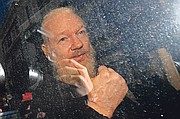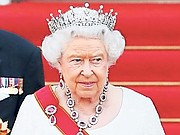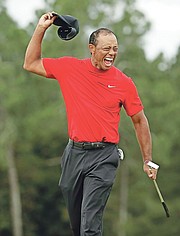The sudden news of the arrest in London of the co-founder of WikiLeaks, Julian Assange, not surprisingly hit the headlines last week. This is a significant and intriguing development because controversy about it is shaping up to be a major test of the principle of a free press in a democracy protecting the public interest and the right of governments to keep their classified information secure. The arrest has been welcomed and condemned in equal measure.
Mr Assange jumped bail in England in 2012 to escape an arrest warrant for extradition to Sweden to face charges of rape and other sexual misconduct. He then sought asylum at Ecuador’s embassy and had been living there ever since.
After accusations of leading an erratic and sordid lifestyle during his seven-year sojourn at the embassy, his asylum was eventually revoked last week and Ecuador’s diplomatic protection ended. British police were allowed to enter the embassy and take him into custody for failing to surrender to the court, though there is some evidence his arrest was also at the request of US law enforcement.
Within days, he was found guilty by magistrates of breaching his earlier bail conditions and now faces one year in prison, but it remains to be seen whether Sweden will resurrect the charges against him. To some people, however, the Swedish aspect is almost a sideshow. What is more significant is that he also faces possible extradition to the US to face charges of conspiracy in hacking in to government computers in order to steal official classified electronic communications.
WikiLeaks is described as a non-profit organisation that publishes classified information and news leaks provided by anonymous sources. On its website it expresses its willingness to ‘accept restricted or censored material of political, ethical, diplomatic or historical significance’. At first sight, that sounds much like the regular work of investigative journalism. But Mr Assange has attracted notoriety because of the sources of the classified material WikiLeaks has published and the way it has been obtained.
The basic question is whether his organisation is a bastion of transparency - because conveying to others information the government does not want the public to see helps to hold it accountable - or whether, by revealing classified information obtained illegally, it is acting irresponsibly in a dangerous and treacherous manner and even putting the lives of government employees at risk.
The US indictment which has been made public seems to be based on allegations Mr Assange conspired with former US Army intelligence analyst, Chelsea Manning, to crack government computer codes. But, rather than being accused of espionage, he is apparently facing a maximum of five years in prison for the less serious charges of receiving and publishing classified data.
Reportedly, the British government’s view is he must now face justice, whether that means in Sweden on sexual misconduct charges or in the US for computer hacking. Extradition from Britain will be a matter for the courts and presumably an important consideration will be the likelihood of his receiving a fair trial. Concern has also been expressed that extradition which then leads to prosecution of a foreign publication for violating US security laws could create a dangerous precedent when it can be contended the information concerned was disseminated in the public interest. However, that raises the question of who is the judge of what that interest is? Official material is classified because the government considers its publication would be injurious to the interests of the state. So can it ever be justifiable to release classified documents to the public without authority?
Newspapers have often published such information - including, in the case of WikiLeaks, the Guardian in the UK and the New York Times which have carried redacted versions of material. But, in open democratic societies, such questions have long been subject to debate and conflicting views - in particular, how to determine and define the public’s right to know.
In Britain, the Official Secrets Act has been accepted as necessary for the nation’s security, though prosecutions under it are relatively rare. But the essential role of the Fourth Estate there in holding politicians accountable - and in cutting down to size those who abuse their power -has been notably effective. Investigative journalism is crucial for a democracy to thrive and this has been bolstered by Freedom of Information legislation. But the activities of WikiLeaks surely exceed what could be considered reasonable and acceptable behaviour since, in proactively and systematically hacking into government-owned classified computers, it was behaving more like a hostile foreign intelligence organisation. Its actions amounted to criminality which is clearly incompatible with investigative journalism. Presumably, there are also privacy laws to consider that apply equally to privately-owned computers.
It would be impossible to conduct government business properly, not least with foreign countries, if detailed discussion of policy leading up to decision-making were to be made public; for example, in the case of WikiLeaks disclosing the content of diplomatic cables. If there is public concern about the actions of governments, there are ways of protesting and persuading them to change -- from the extreme of the current rioting in French cities to investigative journalism in exposing wrong doing by government ministers and, ultimately, to the ballot box. But indiscriminately leaking government communications is likely to make governing more difficult and less effective, which may not be in the public interest.
The fundamental issue remains. Can it ever be right in a democratic society to allow a self-appointed quasi-whistle blower from an organisation like WikiLeaks to determine what is in the public interest and claim his judgment of that justifies the theft and leaking of classified documents belonging to an elected government? In my view, the answer is a resounding ‘no’.
Happy birthday, your Majesty
The Queen’s 93rd birthday on April 21 coincides with Easter this year. This is her real birthday. Her official birthday is usually on the second Saturday of June because of the greater likelihood by then of fine weather for the traditional annual ceremony of Trooping the Colour. In the present mood of the country, with many saying politicians have forfeited public trust, British people should surely be thankful to have a Head of State who is widely loved and revered and, in a troubled world, is a symbol of stability, unity and continuity. It is wonderful that she remains in good health and continues to perform her public duties as an inspiration to the nation.
Tiger triumph was America at its best
There is no denying the annual Masters tournament at Augusta National in Georgia is the pre-eminent event in the world’s golfing calendar. The venues for the US Open and the British Open – properly termed The Open – change each year and, while excellent golf courses, they are not strictly comparable. For professional players the dream is to compete at the Masters, and victory there is seen as the pinnacle of golfing achievement. The setting and atmosphere at Augusta are unmatched and this, combined with its history of notable performances by legendary former players, makes it, in the view of most, a truly amazing place.
The climax on Sunday of Tiger Woods’ spectacular success in winning his fifth Masters title and his 15th major tournament places this year’s event in a special category as one of the most memorable. But, even the day before in the glorious spring sunshine, TV commentators were calling it one of the very best, with a star-studied field of the world’s top golfers competing on a course that was in perfect condition after the rains of the previous week. At one point on Saturday afternoon, in a bunched and crowded leaderboard of players separated by only a stroke or two, eight of the top ten were already winners of majors. To golf aficionados, it was magical stuff.
The final day was just as good, albeit under cloudy skies, with an electric air of expectancy. The battle went up to the wire as a clutch of players were still in with a chance during the final holes, including Francesco Molinari, the Italian winner of last year’s Open at Carnoustie in Scotland who had been the overnight leader. But Woods, whose last win at a major was more than 10 years ago, finally prevailed by a single stroke. Amid emotional scenes, a Hollywood scriptwriter would have been hard pressed to have devised a more fitting denouement. It was breathtaking stuff and an incredible comeback for him at the age of 43 after a string of injuries and personal problems that had threatened to end his career.
Even those with little interest in golf will acknowledge the excellence of this momentous sporting event – and, reflecting on the extensive and high quality TV coverage during all four days of a tremendously successful tournament, I couldn’t help thinking this was America at its best.








Comments
DDK 5 years ago
ANIOTHER POINT OF VIEW: "WikiLeaks founder Julian Assange has been given an award established in honour of an assassinated journalist. Assange, jailed last week after being forcibly removed from the Ecuadorian embassy in London, was awarded the 2019 GUE/NGL Award for Journalists, Whistleblowers & Defenders of the Right to Information. It is sponsored by European parliamentarians after being established in 2018 in honour of assassinated Maltese journalist Daphne Galizia. The award is given to individuals "uncovering the truth and exposing it to the public" and to honour "individuals or groups who have been intimidated and/or persecuted for uncovering the truth and exposing it to the public". Nobel Peace prize winner Mairead Maguire collected the award on the Australian's behalf at an event in the European parliament in Strasbourg. Kristinn Hrafnsson, WikiLeaks editor, said: "Through WikiLeaks Julian Assange's vision of transparency has revolutionalised journalism. "His imprisonment and threatened extradition to the United States has drawn a sharp line in the sand. You are either encouraging the crackdown on media freedom or you are standing with Julian Assange." Last year the Galizia prize was jointly awarded to murdered Slovak journalist Jan Kuciak and LuxLeaks whistleblower Raphael Halet. Assange had lived inside the embassy for almost seven years before his diplomatic asylum was revoked. news.com.au
Sign in to comment
Or login with:
OpenID